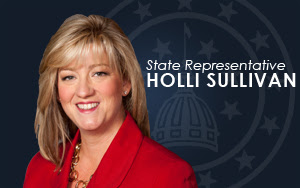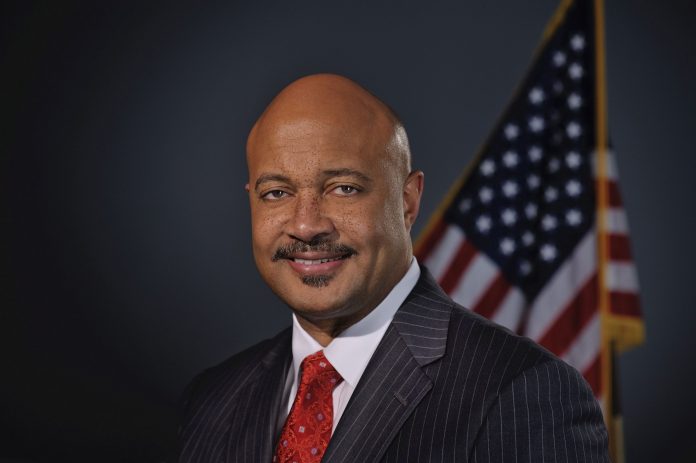Staff Report
TheStatehouseFile.com
INDIANAPOLIS—Legislation regulating panhandling, IndyGo, syringe exchanges and charter schools advanced out of the Senate Tuesday, the last day bills could be heard in either chamber. Among the bills that were passed:
Senate Bill 335: Criminal law issues, including panhandling.
What it does: SB 335 covers many changes in criminal law, including to crack down on panhandling. The bill makes it a Class C misdemeanor to panhandle within 50 feet of the entrance or exit to a bank, business, restaurant, anywhere where a financial transaction occurs or a public monument, in addition to all the other limitation on panhandling currently in Indiana law. Among other provisions, the bill adds strangulation and domestic battery to the definition of crimes of violence and makes it a Level 6 felony to possess a firearm with a tampered serial code.
What happened:Â The bill passed the House 85-10. Rep. Vernon Smith, D-Gary, raised concerns about the panhandling changes and its impact on the homeless population within Indianapolis. Rep. Wendy McNamara, the Evansville Republican who sponsored the bill in the house, said this was not targeted at the homeless but instead at aggressive panhandlers who block a person on a sidewalk or follow them.
What’s next: The bill will return to the Senate for a vote on whether to concur with any changes in the House, sending the bill then to the governor, or to dissent and send the bill to a conference committee to reach agreement on a final version.
* * *
House Bill 1279:Â Allows nonprofits in Northwest Indiana to carry out transit development and enacts penalties for IndyGo, the Indianapolis transit system.
What it does: HB 1279, authored by Sen. Ryan Mishler, R-Bremen, would allow the Northwest Indiana Regional Development Authority to establish a nonprofit to carry out plans in transit development districts. When the bill made it to the Senate, Sen. Aaron Freeman, R-Indianapolis, offered an amendment that would impose penalties for IndyGo, if it doesn’t pay 10% of its operating costs of the Red Line, the express transit service, from private funds by the end of 2020. The penalties were set in place when legislation was passed in 2014 allowing Indianapolis to offer a referendum on mass transit in Marion County.
What happened: HB 1279 passed the Senate with a 43-7 vote. Sen. Karen Tallian, D-Ogden Dunes, said she voted yes on the bill because of the economic development in Northwest Indiana. She said, however, that she hopes the language regarding IndyGo is removed from the bill in conference committees. Sen. Mike Bohacek, R-Michiana Shores, said the bill would greatly impact his northwestern district, and that it was too big of a bill to vote against.
What’s next: The difference between the House and Senate versions of the bill are expected to be hashed out in a conference committee.
* * *
Senate Bill 178: Covers a range of election matters
What it does: SB 178 covers a number of election regulations, but the most controversial would prevent anyone from holding the attorney general’s office if his or her law license has been suspended for more than 30 days in the previous five years. What’s more, it would prevent that individual from running for office.
What happened: SB 178 passed the House by 82-14 vote and targets Attorney General Curtis Hill, who faces punishment from the state’s Disciplinary Commission on charges he grabbed and groped four women at a legislative gathering two years ago. Rep. John Bartlett, D-Indianapolis, argued against the bill, saying he didn’t believe that lawmakers should be enacting legislation that affects one person—Hill. Rep. Timothy Wesco, R-Osceola, who offered the amendment targeting Hill, raised the question: “What is the standard we find acceptable?†A hearing officer in Hill’s disciplinary case has recommended that his license be suspended for 60 days without an automatic renewal. Hill is seeking re-election.
What’s next: The bill will now return to Senate for a vote on whether to agree with the changes from  the House. If the Senate concurs the bill would go to the governor or if there is a dissent, SB 178 would go to a conference committee to reach agreement on a final version.
* * *
Senate Bill 4: Health programs
What it does: A provision of SB 4 deals extends by one year syringe exchange programs, which were set to expire on July 1, 2021. In addition, the bill requires those operating syringe exchange programs to test for communicable diseases. A separate section of the bill bars the Family and Social Services Administration from implementing a managed care program for those eligible for nursing facility services as well as being eligible for both Medicare and Medicaid until June 20, 2021.
What happened:Â The bill passed the House by an 82-2 vote. An earlier effort to extend the syringe exchange program indefinitely failed. Now, it will expire July 1, 2022, a year later than originally planned. Rep. Cindy Kirchhofer, R-Beech Grove, House sponsor of the bill, noted that the latest version also includes requirements for testing and treating communicable diseases. Rep. Rita Fleming, D-Jeffersonville, said that the syringe exchange program was something that had a profound impact on her community, and that testing for diseases such as HIV is extremely important.
What’s next: SB 4 will now move go to the governor’s office for review and signature.
* * *
House Bill 1066:Â Charter school accountability
What it does:Â The bill would revoke charter schools ability to operate and require them to reimburse the state should any funding irregularities be found. It also requires all schools to submit a report due by Dec. 1 of this year looking at the enrollment count and completion data, gives preference to students for admission.
What happened: The bill passed the Senate 42-8. Sen. Greg Taylor, D-Indianapolis, opposed the bill because he said the legislation is not directly addressing the situation at two virtual schools. A state audit found that officials from two Indiana virtual charter schools misspent more than $85 million in state funding by inflating enrollment and funneling millions to a related companies. “Folks, this is not political,†Taylor said. “As a fiscal conservative myself I am tired of people stealing from the citizens of the state of Indiana. They stole from our citizens.â€
What’s next: The bill now returns to the House. If that chamber dissents from Senate changes it will go to a conference committee to hammer out a final version. If the House concurs with any changes, the bill goes to the governor for his consideration.
* * *
Senate Bill 229: Maintenance of regulated drains
What it does: SB 229 would not require a permit from the Indiana Department of Environmental Management to reconstruct or repair a regulated drain that might be in a wetland area.
What happened: The bill passed the House by a 58-37 vote. Rep. David Wolkins, R-Warsaw, said the intention of SB 229 is to allow drains to be quickly fixed without the landowner having to apply for a permit. Rep. Sue Errington, D-Muncie, said the bill could have an impact on wetlands where some of the drains might be located and she is concerned about creating exceptions to the state’s wetlands regulations.
What’s next: The bill will return to the Senate and if that chamber dissents from House changes it will go to a conference committee to hammer out a final version. If the Senate concurs with the changes, the bill goes to the governor for his consideration.
* * *
House Bill 1157:Â Driving privileges
What it does:Â The bill requires that if a motorist refuses to take a breathalyzer test, the Bureau of Motor Vehicles must remove any record of a suspension from a defendant charged with operating while intoxicated who wins the case. If the defendant loses, after 180 days he or she can apply for specialized driving privileges if this is a first offense.
What happened: HB 1157 passed the Senate by a 37-13 vote. Sen. Erin Houchin, R-Salem, opposed the bill because she said it could have a negative impact on Indiana’s implied consent law. “Across the country, if you are driving in the state of Indiana you imply consent for the test for intoxication if a police officer has probable cause to believe you are intoxicated,†she said. Sen. Greg Taylor, D-Indianapolis, spoke in favor of the bill because if breathalyzers have not been calibrated in the last 90 days it is considered off and they can be unreliable.
What’s next: The bill now returns to the House. If that chamber dissents from Senate changes, it will go to a conference committee to hammer out a final version. If the House concurs with the changes, the bill goes to the governor for his consideration.
* * *
House Bill 1414:Â Electric generation
What it does: The bill puts a pause on any additional coal plant closures during 2020 while the 21st Century Energy Task Force is completing its work. These provisions expire Dec. 31 of this year.
ord
What happened: The bill passed 37-11. Among those opposing it was Sen. J.D. Ford, D-Indianapolis, who said the bill should be referred back to the task force to let it work through whatever Indiana’s energy policy is going to be. “Our utilities are asking us to help them retire coal facilities and we should not stand in the way of letting him do this,†he said. Ford also Indiana potentially could see billions of dollars in savings in the coming decades by transitioning to other energy sources. Sen. Mark Messmer, the Jasper Republican who sponsored the bill in the Senate, R-Jasper, said nothing in this bill derails the retirement of coal facilities or raises utility rates, but he argued that the use of coal for power generation will be here for a long time.
What’s next: The bill now returns to the House. If that chamber dissents from Senate changes it will go to a conference committee to hammer out a final version. If the House concurs with any changes, the bill goes to the governor for his consideration.
Haley Carney, Lacey Watt and Victoria Ratliff contributed to this report. They are reporters for TheStatehousefile.com, a news website powered by Franklin College journalism.



























